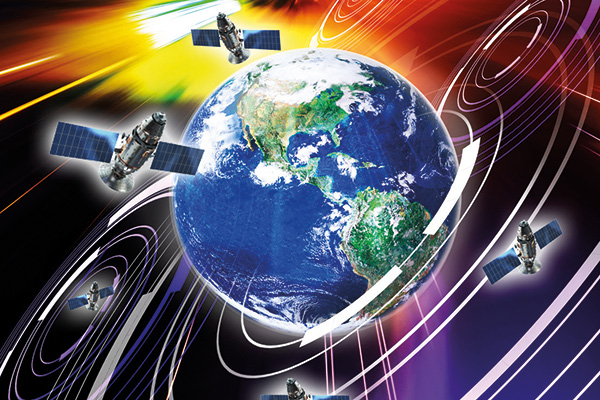The final frontier for investors: space exploration ETFs and trusts
A space exploration investment trust is proposing to IPO, hot on the heels of the YODA ETF.
11th June 2021 13:54
by Tom Bailey from interactive investor
A space exploration investment trust is proposing to IPO, hot on the heels of the YODA ETF.

Space exploration has emerged as a potential investment theme. This has already been picked up by fund houses in the US, most notably with the creation of the ARK Space Exploration and Innovation ETF.
Now, investors in the UK also have a way to gain pure-play access to this theme.
This morning (11 June),Seraphim Space announced it intends to launch a space-themed investment trust, called Seraphim Space Investment Trust. The trust will list on the London Stock Exchange and hopes to raise £100 million at IPO. Will Whitehorn, former president of Virgin Galactic (NYSE:SPCE), will sit on the trust’s board.
According to the announcement, the trust will invest in “a diversified international portfolio of early and growth stage space tech businesses”.
The trust will initially acquire a portfolio of 19 seed assets, already owned by the Seraphim Space Fund. The company highlights several of the firms in question, which are currently privately owned and valued at over $1 billion (£707 million): Arqit, a quantum encryption company; Spire Global, a weather forecaster; and AST & Science, the space-based 4G mobile broadband network provider.
- Scottish Mortgage expands its exposure to the 'space exploration' theme
- Here’s a selection of weird and wonderful ETFs
- Check out our award-winning stocks and shares ISA
With many leading space-related companies still in their infancy and therefore not yet listed, the trust is likely to have exposure to many unlisted companies. The closed-ended nature of investment trusts make them an ideal vehicle for giving investors accessing to companies not yet listed on a stock exchange.
The trust defines the sort of companies it will hold as those “which rely on space-based connectivity or precision, navigation and timing signals or whose technology or services are already addressing, originally derived from, or of potential benefit to the space sector”.
Rather ambitiously, the trust says it is targeting an annualised net asset value total return of at least 20% “over the long term”.
However, for those who prefer ETFs, the recently launched Procure Space ETF USD (LSE:YODA) is a potential option. The ETF listed on the LSE in early June, making it Europe’s first space thematic ETF. For an ongoing charge of 0.75%, the ETF tracks the S-Network Space index.
At least 80% of the ETF’s portfolio is allocated to companies earning most of their revenues from space-related business. The Space Index splits these into two main groupings: satellite operators and hardware. Satellite operators are companies that either own or manage satellites or subsystems aboard satellites. Hardware refers to companies involved in the sale of equipment used by manufacturers in the creation of satellites and launch vehicles, as well as spacecraft components and supporting ground equipment.
However, the ETF’s issuers envision the ETF gaining more exposure to other emerging areas of the space economy, such as space resource extraction and space tourism. The ETF currently has a holding in Virgin Galactic, already giving it exposure to the latter. As it stands, the ETF will hold 30 stocks.

Space stock theme is taking off
Historically, if an investor wanted to gain exposure to “space” stocks, one seemingly obvious option would the aerospace and defence sector, notably companies such as Boeing. However, such companies are only loosely related to space flight and exploration, making them a far from perfect way to gain access to the theme.
More recently, there has been a focus on the potential of space tourism, the prime example being Virgin Galactic, which went public in 2019. However, space tourism is just one small part of the growing commercial potential of space.
Advances in technology are overturning traditional models for operating in space, with low-cost access to space becoming a reality, most notably thanks to innovations around reusable rockets. Since 2010, the cost of both building and launching satellites has fallen by a factor of more than 100x.
- Seven ‘buy and forget’ shares for investors with time on their side
- Take control of your retirement planning with our award-winning, low-cost Self-Invested Personal Pension (SIPP)
These lower costs have the potential to open up all sorts of commercial applications, particularly in areas such as telecoms and satellites. Space-based communications technology are also becoming more integral to the economy. A good example of this are location-enabled apps, such as Deliveroo and Uber, which make use of GPS.
New communication technologies such as 5G, cloud computing, and machine learning also require ever bigger transfers of data. The use of these technologies, therefore, will be increasingly reliant on satellite infrastructure.
As a result, in the years ahead, we should see a surge in satellites in orbit. Today, approximately 4,000 satellites are circling the globe. By some estimates, that will increase by 100,000 over the next decade.
The increased commercialisation of the “space economy” can already be seen in the make-up of investment and spending. According to statistics from the Space Foundation, in the 1960s, government spending represented almost all space spending. Today, that has fallen to just 20%, with the other 80% coming from commercial spending on infrastructure, and their support industries, alongside commercial space products and services.
According to the most recent Space Report from the Space Foundation, the space-related companies generated over $400 billion in revenues in 2019. However, according to the Bank of America, that should grow to $2.7 trillion by 2045.
These articles are provided for information purposes only. Occasionally, an opinion about whether to buy or sell a specific investment may be provided by third parties. The content is not intended to be a personal recommendation to buy or sell any financial instrument or product, or to adopt any investment strategy as it is not provided based on an assessment of your investing knowledge and experience, your financial situation or your investment objectives. The value of your investments, and the income derived from them, may go down as well as up. You may not get back all the money that you invest. The investments referred to in this article may not be suitable for all investors, and if in doubt, an investor should seek advice from a qualified investment adviser.
Full performance can be found on the company or index summary page on the interactive investor website. Simply click on the company's or index name highlighted in the article.